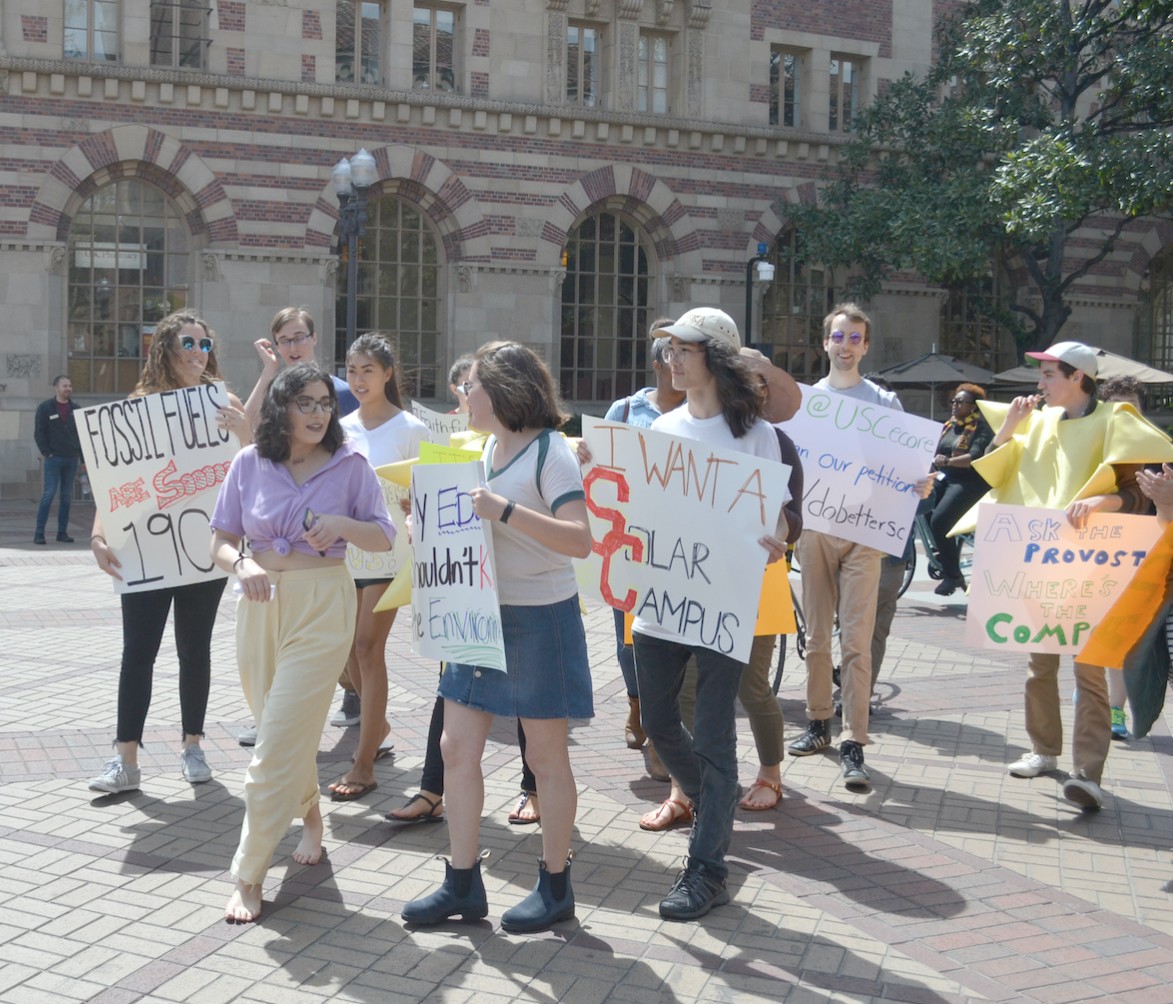Students ask USC to ‘Do Better’ for environment
The Environmental Core hosted the “Do Better” rally at Tommy Trojan Friday asking the University to increase its efforts regarding sustainability.

The Environmental Core hosted a rally Friday calling for increased sustainability on campus. Students chanted phrases like “Hey Nikias, buy a Prius,” and waved signs with similar messages. Autria Mashian | Daily Trojan
ECore, one of USC’s student clubs focused on environmental advocacy, called for President C. L. Max Nikias to sign a commitment to sustainability on campus.
Dozens of students rallied for two hours, chanting phrases like “Hey Nikias, buy a Prius” and “High tuition, no green ambitions, all we have is hella emissions.” The ralliers marched around campus and walked onto USC Village, where they spotted Nikias and followed him.
Nikias left USC Village and the ralliers were asked to leave by USC Department of Public Safety.
The club also set up a table at Tommy Trojan, where they asked passersby to sign a petition urging Nikias to sign the Second Nature Presidents’ Climate Commitment, which promotes sustainable living on campus. The club sent Nikias a letter asking him to sign it.
Nearly 600 universities have signed the commitment and reported on their sustainability, including New York University, California State schools and the University of California system.
ECore director Tianna Shaw-Wakeman said Nikias signing would hold the University accountable.
“[The commitment] has increments for different years so if he signs it, it’s not something that doesn’t have any teeth,” Shaw-Wakeman said. “This is something that’s long term and it’s also something that students can stay a part of.”
However, Mark Ewalt, the executive director of administrative operations for USC, said some of the points in the letter sent to Nikias are already included in sustainability plans and said that the University has made an effort to increase sustainability with the Sustainability 2020 plan and Sustainability 2030 proposal.
The Sustainability 2020 plan aims to reduce greenhouse gas emissions by 20 percent from the levels in 2014, as well as decrease potable water use by 10 percent in 2020.
The last update for the plan came last April and showed funding approved for several projects. The Sustainability 2030 proposal was prepared by the Academic Senate Sustainability Committee Task Force and calls for a “zero-waste” campus and reducing water usage by 50 percent, among other goals.
Undergraduate Student Government Sustainability Advocacy Director Philine Qian said the rally was a strategic shift for the club. After winning a few smaller victories, such as the removal of plastic straws from dining halls earlier this month, Qian said students can only do so much in terms of sustainability.
“It’s more effective for us to rally together for a bigger long-term goal,” Qian said. “Students shouldn’t have the responsibility and the pressure and the stress of coming up with creative ways for the University to reduce their carbon, water and waste footprint.”
